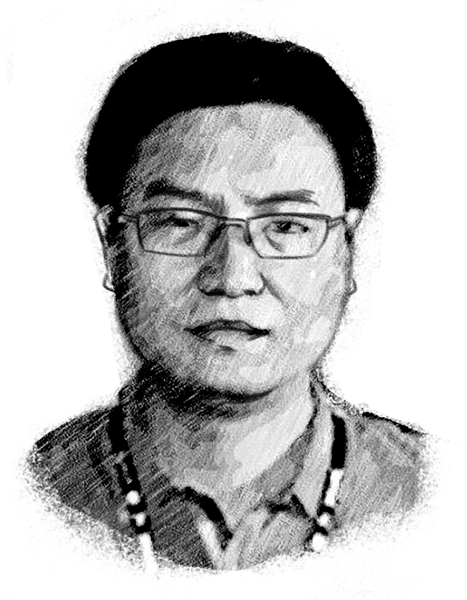Yearender: Predictions for 2016 through 20 questions
Updated: 2015-12-31 07:53
(China Daily)
|
|||||||||||
 |
|
Zhang Haibin |
15. Will fundamental changes take place in global climate change governance after the Paris deal?
Zhang Haibin, a professor with Peking University
Yes. The historic agreement passed at the Paris climate change conference, along with the 2030 Agenda for Sustainable Development passed in the United Nations three months ago, finally made it official that development should be green and low-carbon by then. The 2030 Agenda for Sustainable Development, in particular, is a legally binding promise delivered by the global leaders from more than 190 countries, signaling significant improvement in transparency.
The Paris deal, meanwhile, will surely offer a boost to global confidence in dealing with worsening climate change, encouraging all parties to press ahead with the reform from the bottom up, not the other way round. Against the backdrop of a global economic downturn and the unpromising struggle against terrorism, it also serves as a silver lining that the international community is willing and able to coordinate.
China, which used to be a follower, now plays a bigger role in reform of global governance, as its capability and willingness to cooperate have increased in the past years. Yet, it is becoming clear that the developed economies have every intention of shirking their responsibilities, while fissures are widening among the developing countries.
For underdeveloped countries, especially some small island states, combating climate change is about their very survival; while for major developing countries, it is about their long-term growth. They should have worked together to urge the West to fulfill their responsibilities; unfortunately, the nations seeking survival along with the affluent nations are imposing more pressure on rising China and India.
This should not worry Beijing too much, though, as environmental protection has become a consensus of Chinese citizens, whose living conditions are facing graver environmental challenges, such as the frequent severe smog that swathes a large part of the country.
Private capital will be given wider access to the global climate governance, as the Paris deal indicates, signaling the long-awaited "climate justice" for all countries alike. Judging by its previous performance in fulfilling its international commitments, China will peak its carbon emissions years before 2030.
 |
|
Chu Yin |
16. Will Europe significantly alter its refugee policies?
Chu Yin, an associate professor at the University of International Relations in Beijing, and a research fellow at the Center for China and Globalization
Hard to tell, although in the face of mounting pressure at home and abroad, Europe is already steering its refugee policies in a more conservative direction. Even the optimistic German Chancellor Angela Merkel has agreed to "appreciably reduce the number of refugees".
For the European Union, the major adjustments will be encouraging frontier countries such as Greece and Turkey (a would-be EU member) and stabilizing the Middle East region, in order to accommodate West-bound refugees. As for the asylum-seekers who have managed to enter Europe, they will probably be settled proportionately within the bloc.
What led to the outbreak of the refugee crisis is complicated. European countries' illegitimate interventions in Middle East affairs, which destroyed a few regional stabilizers including the Muammar Gaddafi government of Libya during the so-called color revolution, must be primarily blamed for the mess.
Also, the EU's expansion makes it harder for all members to control the entry of an increasing number of asylum-seekers from Arab countries. For certain political purposes, Turkey loosened its border controls in recent years, knowingly allowing more refugees to enter Europe.
Despite the temporary challenges it may pose to local social order, the current influx of refugees is more an opportunity for the aging European population. A majority of the refugees are well-educated, relatively wealthy, and technically skilled Syrians, who had to pay at least 6,000 euros ($6,589) to arrive in Europe. They are likely to quench the thirst in Europe for quality labor resources.
More importantly, they are victims, not upholders, of the regional extremism represented by the Islamic State militants, and needless to say the free flow of people can hardly be restricted in the age of globalization.
Related Stories
Top 10 policy changes in China in 2015 2015-12-28 07:05
Yearender: Ten most talked-about newsmakers in 2015 2015-12-31 06:36
Yearender 2015: Chinese athletes of year 2015-12-29 11:29
Yearender: 2015 auctions overview 2015-12-29 11:23
Yearender: China and US in 2015 - moving forward together 2015-12-29 10:12
Yearender 2015: Key words from stories that created buzz in China 2015-12-29 07:02
Today's Top News
Storm Frank batters northern Britain
Over 1 million refugees fled to Europe by sea in 2015
Germany to spend 17b euros on refugees in 2016
Demand booms for high-end financial talent
Abe expresses apology for Korean victims of comfort women
North China encounters gas supply shortage
Asian Infrastructure Investment Bank launched
Russia says it has proof of Turkey's support for IS
Hot Topics
Lunar probe , China growth forecasts, Emission rules get tougher, China seen through 'colored lens', International board,
Editor's Picks

|

|

|

|

|

|






